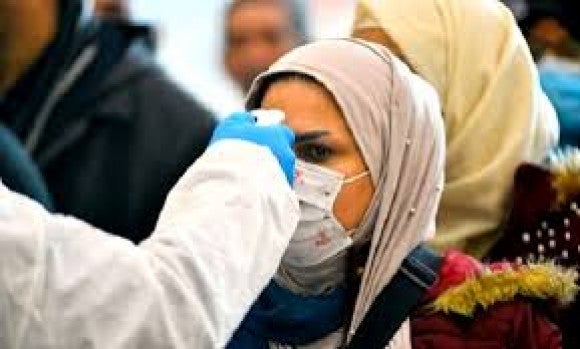Rabat – COVID-19 continues to wreak havoc on economies around the world. Africa has so far faced a relatively manageable crisis, and health officials project the pandemic will affect the continent at a slower rate than other areas due to a dearth of international travel in the region. At the same time, observers expect an increased infection rate to yield more dire results in Africa than it has in already hard-hit countries.
Morocco’s strong COVID-19 response
Amid this threat, Morocco continues to show its capacity to tackle the outbreak. The North African country is demonstrating a responsive strategy through actions such as implementing early stay-at-home legislation and employing DJI drones to sanitize and surveil communities.
These steps are not the products of a quick, ad-hoc response. Morocco has spent years establishing a strong capital reserve and resilient international partnerships in case of crises such as this.
In November 2019, Morocco issued an international bond of £1 billion with a 1.5% coupon rate and 12-year maturity. Investors expressed significant interest in the bond, Morocco’s first in five years.
Morocco also strengthened its relationships with major world powers such as Russia and China, beefing up trade agreements and solidifying strategic allies in key markets.
The country has taken steps to increase investor confidence in the sovereign debt vehicle, and more generally in its institutional stability. While Morocco is still on the European Union “Gray List,” which indicates countries committed to becoming compliant with EU tax regulations, the country has made strides in tax reform to quell concerns, such as those related to transparency.
Morocco has also impressed a number of EU members, including France, with its robust response to the COVID-19 pandemic. One commended measure is the country’s recent launch of a fleet of Chinese-made drones from DJI, tasked with both surveilling communities to ensure they are respecting state of emergency measures, and disinfecting streets.
The threat of Algerian instability
Despite Morocco’s positive steps, including assuming a leadership role in African politics, the market development of neighboring Algeria may hamper further progress.
In a paper titled “Thy Neighbor’s Curse: Regional Instability and Economic Growth, ” authors Alberto Ades and Hak B. Chua argue that political or economic instability in a neighboring country visibly and severely affects a country’s economic performance.
This is the case with Algeria and Morocco.
COVID-19 has ravaged Algeria’s oil-dependent economy, where a confluence of falling oil prices and social dissent severely compromise the country’s plans to issue bonds to shrink its deficit. Algeria witnessed a nearly 15% increase in its public debt to GDP ratio since 2017 on top of a growing trade deficit and a shrinking foreign exchange reserve.
Worsening Algeria’s economic outlook, the country will not benefit from last month’s proposed debt moratorium the G20 proposed for the world’s poorest nations.
According to Ades and Chua, Algeria’s political and economic instability, exacerbated by a frustrated Hirak coalition and the COVID-19 pandemic, could disrupt trade flows for Morocco—including its recent trade agreement with Russia over beef imports.
The instability could also squeeze Morocco’s military budget allocated to secure borders with Algeria and spillover conflict in the Western Sahara. Both of these eventualities could harm Morocco’s yield curve, and prevent potential foreign direct investment (FDI).
Healthy bond markets and sovereign debt yield rates generally incorporate a country’s GDP in their calculus. While there is no direct correlation between GDP and sovereign bond yield, interest rates often move with economic metrics such as per capita income, which can reflect a country’s GDP.
The potential to compromise investor confidence
GDP relies heavily on exports in nascent and emerging market economies such as Morocco, a country which is quickly integrating into the global economy through relations with the EU and its regional role in North Africa. Beyond fears of Algeria’s instability spilling across its border with Morocco, Algeria’s political and economic situation could have material impacts on Morocco’s critical exports.
Morocco imports 45% of its natural gas from Algeria. If Algeria were to undergo political or economic turmoil, those imports could cease, hampering Morocco’s automotive industry and other key sectors.
A divergence of resources to combat growing unrest in the Western Sahara, due to conflict protracted in part by Algerian funds and support, would also slow Morocco’s economic growth. This would likely add a risk premium to Morocco’s sovereign bonds, raising interest rates and lowering bond prices.
These effects alone could hurt investor confidence in Morocco’s ability to pay off its debt. This grim scenario does not even consider additional negative externalities that could arise from Algeria’s political and economic turmoil, including supply chain disruptions and refugee flows, among others.
Potential for advancement with a strong Moroccan response
In contrast, if Algeria were to undergo economic or political turbulence and Morocco’s institutions demonstrated resilience in the face of potential unrest, this could boost investor confidence. Algeria and Morocco will hope to avoid that outcome, however, as it would not be ideal for either nation.
A strong Morocco and Algeria are imperative for the advancement of the Maghreb. Success in this region could yield greater prosperity for Africa as a whole. A unified Maghreb region will have greater bargaining power with the European Union, a necessary but powerful trade partner.
A strong alliance between the two nations would also ease tensions in the Western Sahara, leading to less military spending on both sides, and in turn greater economic development.
As the virus progresses and countries prepare a shift into recovery mode, it may be easier to evaluate the impact of these risks and concerns. This will require quick action as Morocco works to remove itself from the EU Gray List and become a genuine emerging market on the world stage.
Morocco should work to stymie the negative ramifications of Algeria’s COVID-19 crisis and build momentum if it hopes to continue establishing its status as one of the most stable and promising powers on the African continent.
